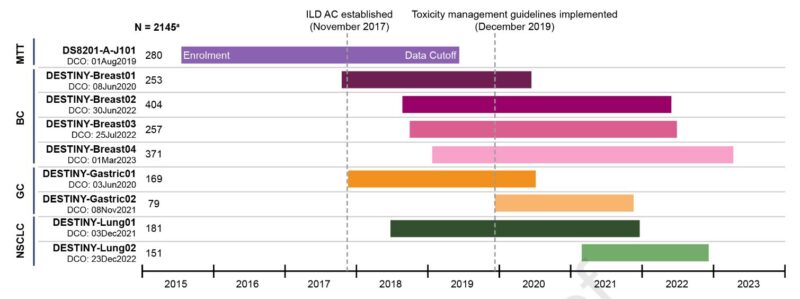Sergio Cifuentes Canaval, Cancer Research Project Manager at CENEIT México, shared a post on LinkedIn:
“T-DXd Retreatment After Grade 1 ILD/Pneumonitis
A pooled analysis of 9 clinical trials (N=2,145) provides the most comprehensive data to date on trastuzumab deruxtecan (T-DXd) retreatment following grade 1 ILD/pneumonitis. These findings have important implications for optimizing therapy in HER2-positive/Low-expressing cancers:
Key Safety and Efficacy Insights
- Retreatment Feasibility:
Among patients with resolved grade 1 ILD (193/2145), 23.3% (45/193) were successfully retreated with T-DXd.
Median retreatment duration: 85 days (range: 1-848), with 17.8% continuing ≥1 year – demonstrating durable benefit in a subset. - ILD Recurrence Profile:
33.3% (15/45) experienced recurrent ILD (all Grade 1-2; no ≥Grade 3 events).
Median time to recurrence: 64 days (range: 22-391) – underscoring need for vigilant imaging follow-up.
60% of recurrences resolved with standard management (per guidelines). - CT Monitoring is Critical:
The analysis reinforces that early radiographic detection (via scheduled CT scans) enables:
1. Timely intervention for recurrent ILD
2. Safer retreatment protocols
3. Distinction between progression vs. inflammatory changes
Why This Matters for Clinical Practice
- Expands therapeutic options for patients who derive benefit from T-DXd but develop manageable ILD.
- Supports risk-adapted strategies: With close imaging surveillance, retreatment can be considered for select patients after Grade 1 ILD resolution.
- Real-world relevance: Aligns with growing experience that not all ILD requires permanent discontinuation.

More posts featuring Sergio Cifuentes Canaval.
